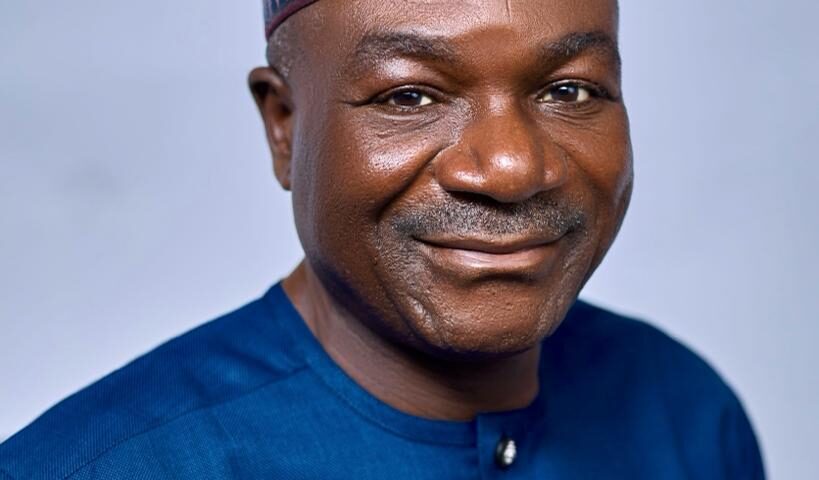Telecomunication stakeholders on Thursday stressed the advantages of collaboration in limiting barriers to national broadband penetration and promoting digital economy. The telecommunications stakeholders spoke at the annual Telecoms Executives and Regulators Forum 2023 (TERF) organised by the Association of Telecoms Companies of Nigeria (ATCON) in Lagos.

The News Agency of Nigeria (NAN) reports that the theme of the forum was, “Success Factors and Barriers to National Broadband and Digital Economy Aspiration.” The Executive Vice-Chairman, Nigeria Communications Commission (NCC), Prof Umar Danbatta, in his keynote presentation, said nobody should be excluded digitally due to barriers.
Danbatta said that inclusiveness should be taken into consideration when it came to provision of Information and Communication Technology (ICT) services. He said that it was important for ICT to be made available to people regardless of circumstances, adding that the barriers should be removed, and ICT services provided. According to him, the commission is promoting the Telecoms Industry through the expansion of broadband infrastructure.

‘’Broadband infrastructure has helped in digital readiness, development, accessibilities to education, medical services, transportation system, finance, commerce and maintenance of the Sustainable Development Goals (SDGs). ’The broadband penetration for the year 2020 was 30 per cent, 50 per cent in 2023 and it is projected to be 70 per cent in 2025. The sector has contributed 16 per cent to the National Gross Domestic Product (GDP), now second after Agriculture,’’ Danbatta said.
He emphasised that the challenges in deployment of broadband infrastructure, particularly in remote, rugged, and swampy terrains was a major obstacle. The NCC boss noted that cybersecurity could become a concern, saying that as digital adoption increased, so did the risk of cyber-attacks and data breaches.
“Strengthening our cybersecurity measures will protect our citizens’ data, boost consumer trust and secure digital infrastructure,” he said.
Danbatta highlighted multiple taxation as a challenge that should be looked into, especially in the area of excise duty placed on luxury goods. He stressed that telcos infrastructure should be treated as essential and not a luxury good.
“Frequent power outages and unreliable power infrastructure are also challenges, which can disrupt digital services. However, addressing this challenge will be key to maintaining uninterrupted connectivity,” the NCC boss noted.
Also, the National Commissioner, Nigeria Data Protection Commission (NDPC), Dr Vincent Olatunji, said at the Forum that the industry trends and growth has brought about mobile technology dominance and revolution in digital payment. He added that it had also resulted in e-commerce surge, start-up ecosystem, among others.
Speaking on the topic, “Landscape of Nigeria’s Digital Economy”, Olatunji highlighted specific trends and growth of internet penetration. He said that the industry challenges are funding, digital literacy, cybersecurity threats, attitudinal change and infrastructural gap.
According to him, data protection has positively impacted the digital economy by improving data security, global recognition, data localisation and innovation in tech start-ups.
The ATCON President, Mr Tony Emoekpere, in his welcome address, said that if issues discussed at the forum could be addressed, the sector’s contribution to the economy would improve.
Emoekpere said that the forum would also help address the salient challenges facing the industry. “ATCON is essentially committed to promoting ICT and Telecoms growth in Nigeria. I appreciate the regulators and all the organisations that supported and contributed to the success of this event,” he said
Also speaking, the President, Association of Licensed Telecoms Operators of Nigeria (ALTON), Engr. Gbenga Adebayo emphasised the need for the independence of the industry.
Adebayo said that ALTON as an advocacy group had been talking about issues as it affected the industry, but nothing seemed to be changing.
He urged the industry stakeholders to look at what should be addressed, own the problem, and solve it themselves. The ALTON president said that the issue of the national tariff should be reconsidered as well as the repatriation of the nation’s young brains.
On his part, Mr Yemi Oshodi, the Managing Director, Information Connectivity Solutions Ltd., said that challenges to universal broadband and digital services in Nigeria included the issue of cost. Oshodi added that it also included creating more infrastructure to initiate connectivity to rural areas.
The Head, Enterprise Sales, Fibre One Broadband Limited, suggested that special and deliberate commitment to indigenous content, freedom from multiple taxation and protection of infrastructure could help to reduce the industry’s challenges.
Source: NAN





